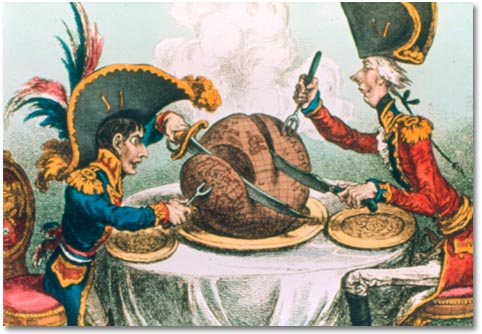The Idea that Never Dies: An Analysis of the Relationship between Nationalism and Politics.
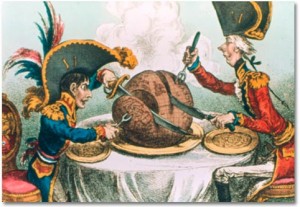 Sociological ideas of communities are a source of political power. To explain the relationship between politics and the idea of the nation, this article must achieve five objectives. First, it will address the debate concerning political power used to control the construction of a nation. Secondly, this article will demonstrate through Marx’s analysis of South Africa, the United States, and Brazil, how the ideas of nation can be used to suppress certain groups. Thirdly, it will use Barreto’s study of Quebec to demonstrate how political movements can develop over time and reshape the idea of nation. Fourthly, it will show that Rwanda is the extreme case of nationalism where political authority disintegrates into violent confrontation. Finally, the article will conclude that the positive outcomes of nationalism is questionable for the interest of each community in question. In addition, it will argue that the political elite appear to promote nationalism to increase their power within the arbitrary political border in which they reside.
Sociological ideas of communities are a source of political power. To explain the relationship between politics and the idea of the nation, this article must achieve five objectives. First, it will address the debate concerning political power used to control the construction of a nation. Secondly, this article will demonstrate through Marx’s analysis of South Africa, the United States, and Brazil, how the ideas of nation can be used to suppress certain groups. Thirdly, it will use Barreto’s study of Quebec to demonstrate how political movements can develop over time and reshape the idea of nation. Fourthly, it will show that Rwanda is the extreme case of nationalism where political authority disintegrates into violent confrontation. Finally, the article will conclude that the positive outcomes of nationalism is questionable for the interest of each community in question. In addition, it will argue that the political elite appear to promote nationalism to increase their power within the arbitrary political border in which they reside.
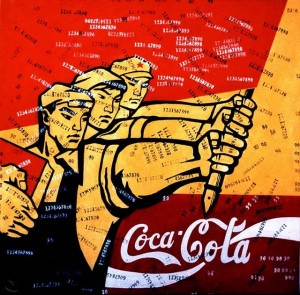 The idea of civic nationalism versus ethno-nationalism is part of identity politics. Very seldom does one cultural group perfectly fit within a political boundary. Professor Lange stated true nation-states are difficult to find on the world map[1]. Norway is one reasonable example of an ethnic-national group or nation-state but most countries are more heterogonous. Canada is a strong example of a civic nationalism because the political will is too weak to homogenize its diverse cultural groups like a monolith. On the other hand, the melting pot cultures of France, the United States and Britain best demonstrate the power of the state to shape identity politics.
The idea of civic nationalism versus ethno-nationalism is part of identity politics. Very seldom does one cultural group perfectly fit within a political boundary. Professor Lange stated true nation-states are difficult to find on the world map[1]. Norway is one reasonable example of an ethnic-national group or nation-state but most countries are more heterogonous. Canada is a strong example of a civic nationalism because the political will is too weak to homogenize its diverse cultural groups like a monolith. On the other hand, the melting pot cultures of France, the United States and Britain best demonstrate the power of the state to shape identity politics.
Max Weber listed three characteristics of a state: first, the state has to do with political organizations that are linked together to form an apparatus of government. Second, it has legitimate power to use coercion. Thirdly the state has set political boundaries[2]. This civic nationalist argument claims that the nation comes after the state. Benedict Anderson argues in Calhoun’s piece that the nation emerges as an ‘imagined community’ within a state. This occurs because states impose domination and re-shape ethnic identities within society. In England during the 17th and 18th century, according to Calhoun[3], state infrastructure eroded clan loyalties during the Glorious Revolution with the end result of strengthening the central administrations power. Aggressive states construct strong definitions of community unity and habitually impose ethnically distinct groups to assimilate to standardized values and norm.
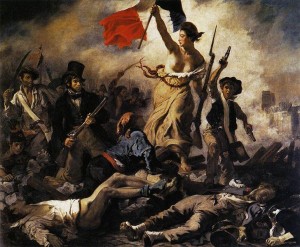 According to Calhoun, a pertinent instrument for the power of the state to dominate the ‘nation’ is through education. In the 19th century, France standardized education thus creating the French people and the French language through strictly enforced laws. A mythology of history is also important in shaping nationhood whether it is true or false. For example, in French history, the Gauls were the formative people of their nation but this is historically inaccurate[4]. In addition, a national press and literature shapes the ideas of the national community. The culture of a nation like Britain is greatly influenced by British authors and intellectuals. Nationalism can be used as an instrument of incredible power for its elite classes. The sense of patriotism and national loyalty is what mobilized millions to fight in World War I. As the evidence then suggests, most sociologists will claim that the nation is predominantly created and is not mainly a pre-existing reality. The state tends to impose identity politics on the people within to achieve its political goals. As the following examples show, the state desires to shape culture and the political will of the masses.
According to Calhoun, a pertinent instrument for the power of the state to dominate the ‘nation’ is through education. In the 19th century, France standardized education thus creating the French people and the French language through strictly enforced laws. A mythology of history is also important in shaping nationhood whether it is true or false. For example, in French history, the Gauls were the formative people of their nation but this is historically inaccurate[4]. In addition, a national press and literature shapes the ideas of the national community. The culture of a nation like Britain is greatly influenced by British authors and intellectuals. Nationalism can be used as an instrument of incredible power for its elite classes. The sense of patriotism and national loyalty is what mobilized millions to fight in World War I. As the evidence then suggests, most sociologists will claim that the nation is predominantly created and is not mainly a pre-existing reality. The state tends to impose identity politics on the people within to achieve its political goals. As the following examples show, the state desires to shape culture and the political will of the masses.
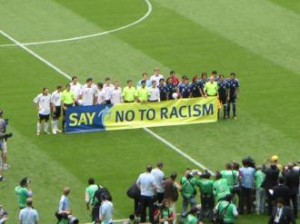 The most compelling examples of power’s relationship with ideas is noted in Anthony W. Marx’s Making Race and Nation. According to Marx, “States made race: amid pervasive discrimination, official actions enforced racial distinctions or did not, with profound consequences”[5] in the United States, South Africa and Brazil. From the reading, it is again confirmed, that the political elite utilized institutions of coercion and coordination to maintain their control. For Marx, nation building is about exclusion and inclusion by the political elite.
The most compelling examples of power’s relationship with ideas is noted in Anthony W. Marx’s Making Race and Nation. According to Marx, “States made race: amid pervasive discrimination, official actions enforced racial distinctions or did not, with profound consequences”[5] in the United States, South Africa and Brazil. From the reading, it is again confirmed, that the political elite utilized institutions of coercion and coordination to maintain their control. For Marx, nation building is about exclusion and inclusion by the political elite.
The incorporation of a slave population in these three cases shows how different kinds of countries can develop based on the legacy of slavery. In the US, intra-white conflict between North and South became secondary to the fear of black political influence. After the Civil War of 1861-65, the Jim Crow South’s segregation laws rejected the blacks as part of the white community in America. The threat of African-American freedom unified whites into a nation, according to Marx. This relegated blacks into sub-ordinance and the incorporation of the black nation was not substantial. The cultural idea of black inferiority reinforced the idea of a white nation and an African-American nation. This idea of the community gave the whites the political power and segregated blacks from any real societal influence. The racist ideals would continue for the sake of the white nation and the political elite would be the greatest beneficiaries of this imagined cultural division.
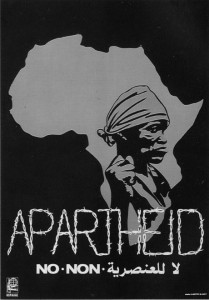 South Africa’s apartheid between 1940 to 1990 was the extreme example of racial inequality where once again the white nation discriminated against the blacks for intra-white unity purposes. In this case, it was between the Belgian Afrikaners and the British. Like the American Civil War, the tension between whites over the Boar War was secondary to the strategic question of how to deal with the black majority. South Africa was unique among the three examples Marx discusses because it enforced an explicit institutional policy of bi-nationalist apartheid as a solution to their concerns. Instead of a confederation like Canada or the United States, South Africa had a unitary parliament with a centralized government (95, Marx) which ensured power remained in the hands of the white elitists. This strengthened national institutions that would divide between whites and the others. Cultivated as part of their culture, Boar Calvanists refused to even believe that blacks were part of the real community of God[6]. This institutionalized racism was deemed necessary given the threat of the black majority and once again gave white South Africans like Americans a much higher equality of opportunity.
South Africa’s apartheid between 1940 to 1990 was the extreme example of racial inequality where once again the white nation discriminated against the blacks for intra-white unity purposes. In this case, it was between the Belgian Afrikaners and the British. Like the American Civil War, the tension between whites over the Boar War was secondary to the strategic question of how to deal with the black majority. South Africa was unique among the three examples Marx discusses because it enforced an explicit institutional policy of bi-nationalist apartheid as a solution to their concerns. Instead of a confederation like Canada or the United States, South Africa had a unitary parliament with a centralized government (95, Marx) which ensured power remained in the hands of the white elitists. This strengthened national institutions that would divide between whites and the others. Cultivated as part of their culture, Boar Calvanists refused to even believe that blacks were part of the real community of God[6]. This institutionalized racism was deemed necessary given the threat of the black majority and once again gave white South Africans like Americans a much higher equality of opportunity.
Brazil is a unique case because there were no formal institutions of inequality and there was no intra-white conflict. Brazil had a roughly equal mix of African and European ancestry[7]. Despite the brutality of the Portuguese slave system[8] Marx claims violence is absent in Brazil because of the idea of ‘racial democracy’. This Brazilian nationalist concept created the façade of equality to placate the black citizenry. Racial democracy removed “Afro-Brazilians of any legally explicit cause for their subordination”[9] which prevented anti-white mobilization. Regardless of the appearance of non-discrimination however, economic prosperity in Brazil required cheap labour from Blacks. None of this cheap labour was enforced by law and blacks accepted this as natural fact thus avoiding racial tensions. Domination is ‘officially encoded in racial terms”[10] and similar to the Rwandan case, the census was used to racially encode the basis for official discrimination. Brazil’s ‘racial democracy’ is the most subtle form of oppression and was used by political actors such as Vargas to gain further federal powers in 1935. According to Marx, “the convergence of Brazilian nationalism and the image of racial democracy had the almost magical result of projecting an established social and racial order without conflict”[11]. National unity relied on racial democracy and yet black Brazilians did not benefit. The main beneficiaries were again the white elite.
 Identity politics is the cause of political disjointedness on the northern-half of the North American continent. In Canada, language is the most salient and obvious cleavage that precipitates distinctiveness[12]. According to Calhoun, language often plays a key role in ethnic versions of nationalism, “since ancient language, shared as the parental tongue among the members of the nation, seems to guarantee its true existence prior to”[13] any political arrangements. As a consequence, Canada and the province of Quebec are unique because they share two dominant linguistic and religious communities of the Catholic French and the Protestant English. In the past, race-based genetic claims made between the two groups according to the Durham Report[14] gave the Anglophones superior identity over the Francophone. To prevent assimilation, the protection of the Francophone community relied on the Catholic Church. Thus, religion became part of the French identity in Canada. This religious institution was empowered implicitly to politically shape the ideas of the Francophone community and to help govern Lower Canada up until the Liberal government of 1960. Until 1960, there was no call for sovereignty in Quebec. The Quiet Revolution shift demonstrates what Barreto argues, that the nation is not static and can evolve because of changes in power relations.
Identity politics is the cause of political disjointedness on the northern-half of the North American continent. In Canada, language is the most salient and obvious cleavage that precipitates distinctiveness[12]. According to Calhoun, language often plays a key role in ethnic versions of nationalism, “since ancient language, shared as the parental tongue among the members of the nation, seems to guarantee its true existence prior to”[13] any political arrangements. As a consequence, Canada and the province of Quebec are unique because they share two dominant linguistic and religious communities of the Catholic French and the Protestant English. In the past, race-based genetic claims made between the two groups according to the Durham Report[14] gave the Anglophones superior identity over the Francophone. To prevent assimilation, the protection of the Francophone community relied on the Catholic Church. Thus, religion became part of the French identity in Canada. This religious institution was empowered implicitly to politically shape the ideas of the Francophone community and to help govern Lower Canada up until the Liberal government of 1960. Until 1960, there was no call for sovereignty in Quebec. The Quiet Revolution shift demonstrates what Barreto argues, that the nation is not static and can evolve because of changes in power relations.
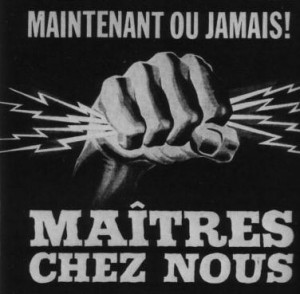 Quebec nationalism is an example of political relations triggered by a change in the sociological attitudes of an entire provincial sect. The Francophone cleavage began to shift towards a movement of solidarity with an ethno-cultural tradition during the 1960s. Under the Lesage government, there was the growing influence of the French elite who called for the removal of the linguistic hierarchy or glass ceiling of Anglophone dominance and made French the language of work. Power shifted and the idea of nationalism required changes to this provincial society. The urbanization of Quebec and the shift in control of education from the Catholic Church to the secular bureaucrats “was also less apprehensive that its predecessors to call for separation from the Canadian Confederation”[15]. Again, education shapes the history of a people as Quebec education greatly influences perspective on the French nation in Canada. The French elite were “determined to protect their sole remaining bastion”[16] and the French majority in Quebec began to take non-religious based control within the arbitrary political boundary of Quebec. If nationalism is an attempt to get the political boundaries to coincide with their cultural boundaries, then Quebec was moderately successful with the exodus of 100,000 Anglophones from the period of 1978 to 1983[17]. The demarcated lines between Quebecois and other Canadians are not clear and so Calhoun admits it is difficult to define the nation.
Quebec nationalism is an example of political relations triggered by a change in the sociological attitudes of an entire provincial sect. The Francophone cleavage began to shift towards a movement of solidarity with an ethno-cultural tradition during the 1960s. Under the Lesage government, there was the growing influence of the French elite who called for the removal of the linguistic hierarchy or glass ceiling of Anglophone dominance and made French the language of work. Power shifted and the idea of nationalism required changes to this provincial society. The urbanization of Quebec and the shift in control of education from the Catholic Church to the secular bureaucrats “was also less apprehensive that its predecessors to call for separation from the Canadian Confederation”[15]. Again, education shapes the history of a people as Quebec education greatly influences perspective on the French nation in Canada. The French elite were “determined to protect their sole remaining bastion”[16] and the French majority in Quebec began to take non-religious based control within the arbitrary political boundary of Quebec. If nationalism is an attempt to get the political boundaries to coincide with their cultural boundaries, then Quebec was moderately successful with the exodus of 100,000 Anglophones from the period of 1978 to 1983[17]. The demarcated lines between Quebecois and other Canadians are not clear and so Calhoun admits it is difficult to define the nation.
With this example once again, according to Lange, the French elite had the most to gain from making demands of separation. Legislation made French the dominant language so that power could be concentrated into the hands of the people within the French community. For Barreto, as a constructivist, he recognizes that there are no concrete elements in society that drives the identity of a collective.
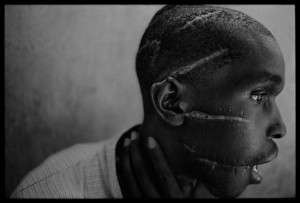 The tragic example of Rwanda helps develop a conclusive case about civic nationalism and the constructivist argument that ideas are used to achieve political ends. Mamdani is an extreme constructivist since he believes that the identity of the Hutu and Tutsi was designed by the Belgian colonials to create divisionary groups for the benefit of the whites in the region. The Tutsi were the political elite and the Hutu were the labourers under colonial rule. The Tutsi physically appeared to be tall, skinny and more adept at animal herding while the Hutu physically appeared to be shorter, fat and more adept at agriculture. Although some sociologists believe that the Tutsi and Hutu were of different origins at some point, Mamdani claims they may have had different early history but that segregated inter-breeding during the colonial era perpetuated the distinctions[18]. The state’s colonial census racialized the two groups and allowed the Tutsi to manipulate their the Hutu into labour intensive subordination. Ultimately, the Belgian elite were responsible for the racial tension between the two groups, according to Mamdani. The consequence of the creation of these two nationalisms was the fallout – after the Rwandan independence in 1959 – that left a racist tension that exploded into genocide. In the 1990s, the Tutsi rebels surrounded Rwanda and tried to take back power in a civil war. The Hutu in response preformed an ethnic cleaning of at least 500,000 Tutsi out of fear and hate of their fellow ethno-nationalist group. Regardless of the horrible consequence, this is an extreme case of nationalism that was advanced by political elites desire to manipulate the local community. The question of Tutsi superiority and appearance as a foreign power in Rwanda precipitated the racial hatred between the two groups.
The tragic example of Rwanda helps develop a conclusive case about civic nationalism and the constructivist argument that ideas are used to achieve political ends. Mamdani is an extreme constructivist since he believes that the identity of the Hutu and Tutsi was designed by the Belgian colonials to create divisionary groups for the benefit of the whites in the region. The Tutsi were the political elite and the Hutu were the labourers under colonial rule. The Tutsi physically appeared to be tall, skinny and more adept at animal herding while the Hutu physically appeared to be shorter, fat and more adept at agriculture. Although some sociologists believe that the Tutsi and Hutu were of different origins at some point, Mamdani claims they may have had different early history but that segregated inter-breeding during the colonial era perpetuated the distinctions[18]. The state’s colonial census racialized the two groups and allowed the Tutsi to manipulate their the Hutu into labour intensive subordination. Ultimately, the Belgian elite were responsible for the racial tension between the two groups, according to Mamdani. The consequence of the creation of these two nationalisms was the fallout – after the Rwandan independence in 1959 – that left a racist tension that exploded into genocide. In the 1990s, the Tutsi rebels surrounded Rwanda and tried to take back power in a civil war. The Hutu in response preformed an ethnic cleaning of at least 500,000 Tutsi out of fear and hate of their fellow ethno-nationalist group. Regardless of the horrible consequence, this is an extreme case of nationalism that was advanced by political elites desire to manipulate the local community. The question of Tutsi superiority and appearance as a foreign power in Rwanda precipitated the racial hatred between the two groups.
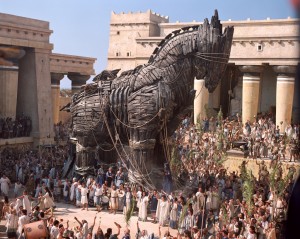 Through the extensive variety of examples, it is evident that the state has the capacity to manipulate the idea of nation and that the political elite are always the substantial beneficiaries of nationalism. This is not to say that inherent historical realities cannot justify nationalist ideals but those who gain the most from their logical conclusions perpetuate such ideas of ethno-nationalism. Each example shows that the idea of nation can be manipulated for the political gains of the elite rulers of that nation or dominant ethno-linguistic cleavage. These imagined communities have the potential to harness extreme forms of power. In some cases, such as Rwandan, the results are devastating for the society while the elite Belgian colonials fled far in advance of the tragedy. In the case of Quebec, a political elite within the distinct group helped develop the idea of nation for their benefit and for the removal of Anglophone dominance. In the case of Brazil, the racial inequality was so deeply entrenched and accepted that tensions and problems do not seem to destabilize the political system. Ultimately, the discourse of identity politics will continue to be manipulated by the powerful as long as they are able to make distinctions between ethnic, religion, or linguistic groups. The consequences can vary but it appears throughout the world that nationalism is not a diminishing ideal but a resurgent constant.
Through the extensive variety of examples, it is evident that the state has the capacity to manipulate the idea of nation and that the political elite are always the substantial beneficiaries of nationalism. This is not to say that inherent historical realities cannot justify nationalist ideals but those who gain the most from their logical conclusions perpetuate such ideas of ethno-nationalism. Each example shows that the idea of nation can be manipulated for the political gains of the elite rulers of that nation or dominant ethno-linguistic cleavage. These imagined communities have the potential to harness extreme forms of power. In some cases, such as Rwandan, the results are devastating for the society while the elite Belgian colonials fled far in advance of the tragedy. In the case of Quebec, a political elite within the distinct group helped develop the idea of nation for their benefit and for the removal of Anglophone dominance. In the case of Brazil, the racial inequality was so deeply entrenched and accepted that tensions and problems do not seem to destabilize the political system. Ultimately, the discourse of identity politics will continue to be manipulated by the powerful as long as they are able to make distinctions between ethnic, religion, or linguistic groups. The consequences can vary but it appears throughout the world that nationalism is not a diminishing ideal but a resurgent constant.
- [1] November 20th, Lange Lecture
- [2] November 1st, Lange Lecture
- [3] Calhoun, 214
- [4] November 29th, Lange Lecture
- [5] Marx, 2
- [6] November 25th, Lange Lecture
- [7] Marx, 8
- [8] Ibid, 9
- [9] Ibid, 169
- [10] Ibid, 4
- [11] Ibid, 168
- [12] Barreto, 103
- [13] Ibid, 218
- [14] Ibid, 66
- [15] Ibid, 111
- [16] Ibid, 69
- [17] Ibid, 104
- [18] Mamdani, 97

